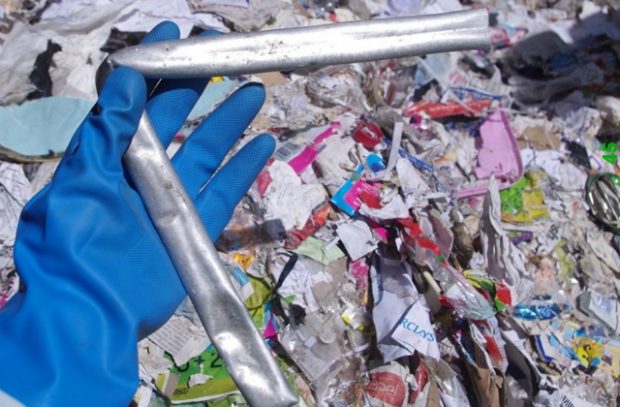
Following an investigation by the Environment Agency (EA), one of the UK’s largest waste management companies - Biffa Waste Services Ltd - has been ordered to pay a total of £599,912 for breaching waste exports regulations.
There was widespread coverage in Saturday’s papers and online, including in the Guardian, Telegraph, Times, Mail, the I and BBC News, following Friday’s sentencing hearing at Wood Green Crown Court.
In June, Biffa was found guilty after a three week trial of sending contaminated household waste, described as waste paper, to China between May and June 2015. Exports of unsorted household recycling waste from the UK to China are banned.
During the EA investigation, officers prevented seven 25-tonne containers destined for China at Felixstowe Port from onward export. Although marked as waste paper, the contents of the containers included soiled nappies, food packaging, items of clothing, bags of faeces, wood, tin cans, plastic bottles and electric cable.
During Friday’s hearing, the court heard brief details about four further charges against Biffa illegally exporting 42 containers of waste collected from households to India and Indonesia between November 2018 and February 2019.
The court fined Biffa £350,000 and ordered that the company pays costs of £240,000 and a further £9,912 under the Proceeds of Crime Act (POCA).
The EA has introduced a number of additional measures to tackle illegal exports including working closely with HMRC reviewing inconsistencies between customs information and packaging data, and creating an investigations team to target serious offenders.
Malcolm Lythgo, Head of Waste at the Environment Agency, said:
We are pleased with the court’s decision. We want all producers and exporters of waste to be responsible and make sure they only export material that can be legally and safely exported for recycling overseas.
Illegal waste export blights the lives and environment of those overseas. We continue to treat illegal waste exports as a priority and will not hesitate to take appropriate enforcement action against those found to break the rules.
Between 2018 and 2019, we prevented the illegal export of 12,690 tonnes of unsuitable waste and are working with the government on a number of measures to tighten controls including increasing monitoring of international waste shipments and charging higher fees to improve compliance.
1 comment
Comment by William Hughes-Games posted on
Such a shame. All he waste mentioned, including soiled nappies (which, by the way are now, more likely to be from the elderly than from babies) can be pyrolized and turned into cooking gas, petroleum, diesel fuel, kerosene (jet fuel) and on up to tar. The output of a pyrolysis retort can be fed right into the fractionation towers of a petrol refinery. If embarking on pyrolysis, it is important that the pyrolysis business is credited with externalities. That is to say, the price, both economic and ecological, of otherwise disposing of the waste. Note that old tires and all plastic are prime feed stocks for pyrolysis. By products include carbon black, charcoal (from wood waste), steel and sulfur (from tires), Pyrolizing as much of a countries waste will extend or even eliminate the need for land fills. This should also be credited to the pyrolysis unit.